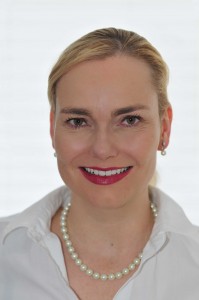Interview: Prof. Birgit Ertl-Wagner, chair of the ESR Education Committee
Many ESR projects fit into the category of education, so it is no surprise that the society’s Education Committee is one of its most active. We spoke to Prof. Birgit Ertl-Wagner, who has chaired the committee since March 2012, to find out a little more about its activities.
ESR Office: What is the overall purpose of the ESR Education Committee and how does it operate?
Birgit Ertl-Wagner: The Education Committee serves as an advisory body for all educational topics within the ESR. Major goals of the committee are the establishment of structures for both undergraduate and postgraduate radiology education and the harmonisation of training in radiology across Europe.
The committee is composed of several subcommittees covering – among other things – training assessment and undergraduate education. Also, the Radiology Trainees Forum is associated with the Education Committee. The committee and the various subcommittees hold meetings on a regular basis, mostly online. We also always meet in person during the ECR.

Prof. Birgit Ertl-Wagner, professor of radiology and section chief for magnetic resonance imaging at the Institute of Clinical Radiology, University of Munich – Grosshadern Campus, and chair of the ESR Education Committee
ESR: What is your background within the ESR committee structure and what motivates you to be involved?
BEW: I first became involved in the ESR committee structure as a member of the audit and standards subcommittee. Subsequently, I chaired the European Training Assessment Program (ETAP), which is a subcommittee of the Education Committee. Since March 2012, I have chaired the Education Committee.
My motivation to be involved in the ESR stems from my firm belief that a strong cooperation and collaboration between European radiologists will help us to better serve our patients and to augment radiology and healthcare as a whole. Moreover, I am also convinced that an outreach beyond the borders of Europe also enhances the manifold benefits that radiology brings to our societies. Last but not least, education is an ideal vehicle to shape the future of radiology and to create a “Radiology without Borders” – to quote the motto of ECR 2015.
ESR: What are the main issues currently on the committee’s agenda, and how are they being tackled?
BEW: There are many activities currently on the committee´s agenda. One of the priorities of the Education Committee is the harmonisation of radiology in Europe. To reach this end, a detailed European Training Curriculum (ETC) for radiology training levels I and II has been developed, which will serve as a model for the development of national curricula. The ESR encourages a five-year training period in radiology with three years allocated to level I and two years for level II. Together with the subspecialty societies we are currently developing a level III curriculum for full subspecialty training after the completion of radiology training. Moreover, we are developing a U-level curriculum as a model for teaching curricula in radiology for undergraduate medical education. In addition, many other projects such as the accreditation of training schemes in radiology are currently underway.
ESR: What new issues or projects do you think the Education Committee will be dealing with in the coming years?
BEW: Education pertains to all aspects and stages of a radiologist’s life. The Education Committee therefore reaches out toward all types of radiological education from undergraduate medical education to life-long learning. In the future e-education tools and also social media activities will become ever more important in radiological training and education. Close interaction between the education committee and the European School of Radiology (ESOR), ESR´s e-learning platform and the European Board of Radiology (EBR) will remain very important also in the years to come.
ESR: How are the interests of the ESR members who benefit from the society’s educational services represented on the committee?
BEW: We very much encourage input from the members of the society. Any interests and needs that are communicated to the ESR will be discussed among the committee members to see how best to serve the society as a whole. It is important to continuously receive input from the members as a reflection of the current educational needs in radiology throughout Europe and beyond.
ESR: How can ESR members learn more about the committee or contribute to the efforts of its various subcommittees?
BEW: We very much welcome suggestions and feedback from the members at large. In addition, anyone interested in contributing to the efforts of the committee and its subcommittees should get in touch with the ESR Office at [email protected] to find out what the current options are.


